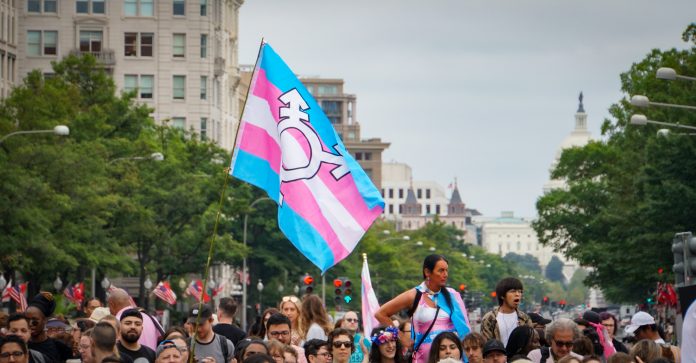A heated fight over transgender athlete participation in Virginia schools is coming to a head this week, as state high school sports leaders prepare to finalize controversial new restrictions — despite mounting pressure from advocates urging them to reconsider.
On Wednesday, the Virginia High School League (VHSL) Executive Committee will meet for the first time since voting nearly two months ago to limit competition in girls’ sports to students assigned female at birth, following an executive order signed by President Donald Trump.
Previously, VHSL policy allowed transgender students to compete on teams aligning with their gender identity, though under specific conditions. The expected would formalize changes to the league’s handbook and policy manual.
“It is not too late for the Virginia High School League to find clarity and courage and to return to an inclusive policy that is sound, both ethically and legally,” said Auden Perino, senior counsel for LGBTQI+ equality at the National Women’s Law Center.
Perino said the February decision has caused “emotional harm” to students and their families. While the change impacts only a small number of students, they emphasized that does not make the issue any less important.
The push for the policy change has largely been driven by concerns around fair competition.
In February, Gov. Glenn Youngkin called the committee’s decision “just common sense” after appearing alongside Trump when he signed the executive order threatening to cut federal funds for those that don’t comply.
“Biological boys should not be competing against girls,” Youngkin wrote on social media.
Victoria Cobb, president of the conservative group Family Foundation, said in a statement that it’s “high time” for the Virginia High School League to do right by girls and protect their safety.
“Participation in sports develops girls into confident leaders,” Cobb said. “When girls step away from the arena because biological boys steal their titles and scholarships, everyone loses.”
However, Perino also pointed out that the “real threat” to high school sports is the chronic underfunding of women’s athletics and the widespread, often unreported harassment and assault cases affecting athletes — issues the NWLC has been tracking for over 50 years.
“These are the real threats to girls involved in school sports,” Perino said. “Obviously, trans youth are responsible for creating zero of these problems, and in fact, are harmed by all of them, just like cisgender youth.”
Perino said if Virginians want to address and prevent sex discrimination in women’s school sports, they should focus on these “real and urgent threats where the gender justice movement has correctly maintained its focus, and we see from far right policymakers only a resounding silence on these topics and a truly creepy fixation on the bodies and lives of a few trans girls and women being scapegoated for political gain.”
Other advocates in Virginia are objecting to the changes and hope the committee will reconsider the action taken in February. Some view the vote as a harmful message — one that affects not just transgender athletes but Virginia’s broader reputation, undermining being “fair,” “inclusive,” and providing “opportunity for everyone.”
“Our hope is that maybe there is a world where they would reverse and go back to the original policy, but if anything, we want to send a strong message to them that they’ve made the wrong decision,” said Narissa Rahaman, executive director for Equality Virginia, a LGBTQ rights advocacy group. “This is impacting community members, and it’s going to impact more than just transgender student athletes, who want to play.”
Rahaman said the committee’s February decision overturned a decade-long policy that was working, noting that the league had initially told the Richmond Times-Dispatch it did not plan to make any changes in January.
Since the policy’s establishment, Rahaman said, Virginia has allowed 42 transgender athletes to play on sports teams matching their identity over the past 10 years.
During the last legislative session, bills proposing to require K-12 public schools and higher education institutions to label each sports team as either boys, girls, or coed — based on the biological sex of the players — failed in the General Assembly.
Del. Delores Oates, R-Warren, and Sen. Tammy Mulchi, R-Mecklenburg, who carried the proposals, did not immediately respond to requests for comment.
“Protecting fairness and safety in girls’ sports is a commonsense principle supported by the majority of Virginians,” Oates said in a statement to The Mercury. “I commend the Virginia High School League for taking action to ensure female athletes compete on a level playing field.
This is about preserving the gains made under Title IX — making sure girls have the same opportunities, scholarships, and team experiences that generations fought hard to secure. We stand with parents, coaches, and students who want to preserve those opportunities, and we will continue working to uphold them.”
By Nathan Kline, The Virginia Mercury. Republished with permission.



